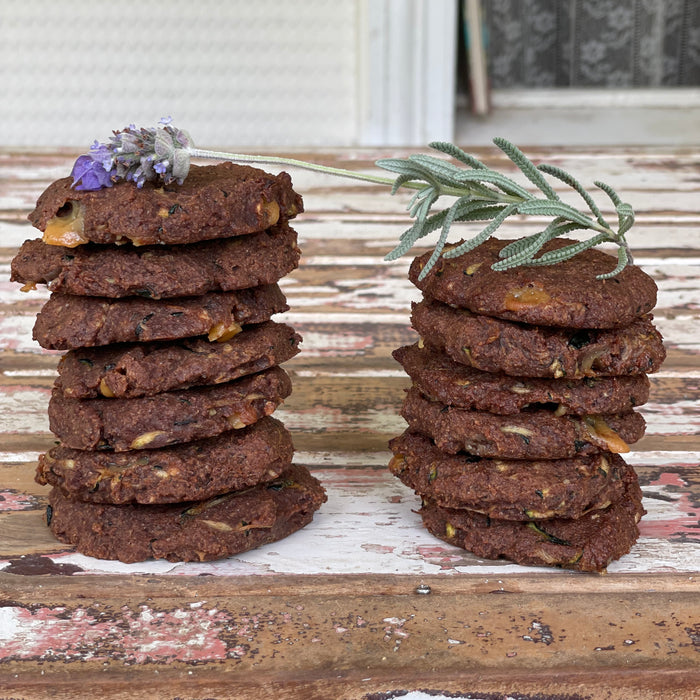Fudgy Chocolate Zucchini Cookie


Everyday Australians, on average, create 180kg of food and garden waste every year. This means that a quarter of all landfill is consisting of organic food and plant materials. Once these materials begin to rot, they produce 15.3kg of greenhouse gases and methane omissions that in turn destroy the atmosphere and contribute to global warming, at a rate of 21 times that of carbon dioxide... That's a pretty confronting number!
Starting your own home compost is a relatively simple and easy way to eliminate the methane produced by rotting plant materials, significantly reducing your carbon footprint in return. Composting is the natural decomposition of food and plant materials like kitchen scraps, fruits, vegetables, lawn clippings, plant off-cuts, and can even be used to dispose of other household materials like hair, coffee grounds and vacuum cleaner dust. After decaying in a controlled environment, the organic materials turn into a source of nutrients for your soil. Plants benefit from home-made compost as it enriches the soil, retains moisture and reduces disease and pests and the need for chemical fertilisers.
Unfortunately, composting in Australia has dropped from 54 to 46 per cent in the last decade, with most people falsely believing that composting is difficult and time-consuming.
Composting requires three basic things: dry brown material (dead leaves, twigs, nutshells, shredded newspaper, cardboard, hay, straw, sawdust), wet green material (fruit, vegetables, lawn clippings, coffee grounds, eggshells, tea bags, house plants), and water. A healthy compost has even amounts of these materials layered over each other and needs to be turned once a week with a pitchfork. Now that doesn't sound too hard does it?!
Please remember though that not all household waste is compostable. Things not to put into your compost include coal or charcoal ash, dairy or meat products, diseased plants or plants that were killed by insects, pet waste, fat and oil. These materials will degrade the compost and make it unsuitable to use on your plants.
There are many ways to make a compost system at home:

So, when it comes to reducing your carbon footprint and being kinder to the earth, composting is a quick and easy solution. Statistically, it takes 12 years for a tree to start removing carbon dioxide from the atmosphere. But composting starts to reduce the amount of rotting food in landfill straight away. Plus, it will enrich the nutrients in your soil so if you grow fruit and vegetables in the garden, those nutrients are then transferred directly into the food you eat.
Author:
Megan Lee
Southern Cross University
megan.lee@scu.edu.au
Twitter – MeganLeePhD
Instagram - @meganlovingmeagain
Facebook – Megan Loving Me Again